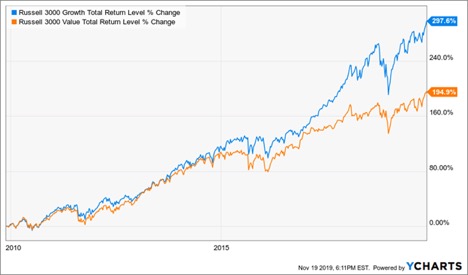“We must use time creatively, in the knowledge that the time is always ripe to do right.”
“We must build dikes of courage to hold back the flood of fear.”
“We must accept finite disappointment, but never lose infinite hope.”
― Martin Luther King Jr.
I open this week’s issue with a few quotes from Martin Luther King Jr. His words hold even more power during these times.
I last wrote on the topic of the market on April 29. At that time the market had begun to rebound from its lows, economic data coming out was not very good at all and many people, myself included, were trying to make sense of the giant disconnect between the economy and the stock market. Here we are on June 11 and if anything the situation has only gotten stranger. This week the S&P 500 is within a few percentage points of its all-time high that was reached before our country was in lockdown. The Nasdaq 100 is actually above its all-time high. We have 20 million unemployed people in the United States. We have a 48% GDP decrease projected by the Federal Reserve Bank of Atlanta. What is fueling this continued disconnect between the economy and the stock market? Let’s take a look at this. In this week’s Inside Look at Building Towards Wealth.
As I mentioned I wrote about it previously here. All of these factors still hold true. To briefly recap
-The market is not the economy: There is no rule written that says the market must reflect what we are seeing out of our windows
-Forward-looking vs backward-looking: The economic data we are seeing is looking at what has happened (backward-looking) while the stock market is looking at what is expected to happen in the future (forward-looking).
-What really makes up the stock market: The S&P 500 is often quoted as “the stock market”. It is actually only a portion of the entire global stock market, although an extremely important part.
-The fiscal stimulus and fed liquidity policies are having a great effect: There is little doubt that this is having a positive effect on the long term outlook of Wall Street towards publicly traded companies.
-Interest Rates: Investable assets have to go somewhere and there just isn’t much upside to investing in bonds that pay you less than $1000 for every $100,000 you are investing. Pension funds, endowments, and sovereign wealth funds, among others, all have to put their money to work somewhere.
This is a situation that does not seem to be changing anytime soon as Chairman of the Fed, Jerome Powell, even went so far as to say “they are not even thinking about raising rates.”
There are some additional factors that are also playing a role here as well.
-Technology stocks: Many technology stocks are once again at all-time highs. If anything, many of the companies have become more important and more attractive, Amazon, Facebook, Zoom, companies like that continue to soar in valuations.
-The return of value: As shown in the charts below, historically value stocks have outperformed growth stocks. Over the last decade that has not been the case. We have started to see, at least in the last couple of weeks, a resurgence in value stocks. We could be seeing a reversion to the mean and value stocks have been adding to the fuel of the factors mentioned above in taking the market higher. The Russell 3000 Index is a capitalization-weighted stock market index, maintained by FTSE Russell, that seeks to be a benchmark of the entire U.S stock market
-Mortgage rates: Mortgage rates continue to hit all-time lows as mentioned here. This has caused the real estate market to continue at levels consistent with the pre lockdown market. Home purchases are not only a good indicator of consumer sentiment but also a driver of durable goods to furnish the home. The continued low rates will continue to buoy the market.
All of this, it should be pointed out, is no guarantee the market will continue to go up. We could have a huge second wave of COVID-19, profit margins become unsustainable, fiscal stimulus could end and there are a dozen other reasons that could send the market tumbling down.
We really don’t know what is going to happen in the short term. There is a lot that does not seem to make sense these days. If we are long term in our outlook, then remain focused on those long term returns and try to tune out the short term noise. There are a near-infinite number of scenarios that could play out in the future. If we act like we know now which one it will be we could be exactly right or exactly wrong. Being exactly wrong is how we end up broke. If we prepare for any eventuality we can keep ourselves from being catastrophically wrong and in extreme financial pain.



